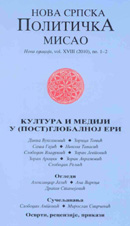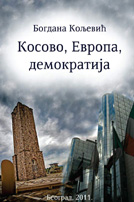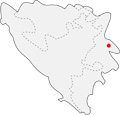| NSPM in English | |||
No to the Srebrenica Resolution |
 |
 |
 |
| уторак, 23. фебруар 2010. | |
|
APPEAL TO PRESIDENT BORIS TADIĆ AND THE SERBIAN PARLIAMENT: DO NOT GAMBLE WITH YOUR COUNTRY’S FUTURE! NO TO THE SREBRENICA RESOLUTION.
As concerned American and European intellectuals and citizens, we call on you to seriously reconsider the plan to adopt a parliamentary resolution that would treat the Srebrenica massacre of July 1995 as a paradigmatic event of the war in Bosnia-Herzegovina and in doing so to use language that could be interpreted as Serbia’s acceptance of responsibility for “genocide.” The execution of Moslem prisoners in July of 1995, after Bosnian Serb forces took over Srebrenica, was a war crime, but it is by no means a paradigmatic event. The informed public in Western countries knows that, at that time, forces attributed to the Republic of Srpska executed in three days approximately as many Moslems as Moslem forces, raiding surrounding Serbian villages out of Srebrenica, had murdered during the preceding three years. There is nothing to set one crime apart from the other, except that its commission was more condensed in time. In a vicious civil war, in which all sides commit crimes, all innocent victims are entitled to compassion but the victims of one ethnic group should have no special moral claim to unique recognition. Putting the suffering of one group on a pedestal necessarily derogates from the right of the other group – in this case Serbian non-combatants in the devastated villages surrounding the enclave of Srebrenica – to an equal measure of sympathy. More importantly, what really happened in Srebrenica in July of 1995 is an issue that is still not settled, or why it occurred, and who was behind it. The accepted version of events, shaped mainly by war propaganda and hyperbolic media reports, is becoming increasingly obsolete because it is being vigorously questioned and reassessed by critical thinkers in the Western world. Much reliable information on these events is still unavailable and needs to be researched, but without it responsible conclusions on the nature and scope of the Srebrenica massacre cannot be drawn. Both the event’s alleged scope and its legal description as “genocide” are intensely in dispute. It would therefore be very unwise for Serbia and its parliament to formally commit themselves to a version of events that is thin on evidence but long on moral and political implications that are extremely detrimental to Serbia and its people. We are also troubled by the prospect of Serbia and its parliament might accept the thesis that the massacre in Srebrenica, regrettable as it may be, amounts to “genocide.” That would unpardonably diminish genuine genocide as a phenomenon of the 20th century, of which the Holocaust of the Jewish people and the mass extermination campaigns against Armenians, Pontus Greeks, Assyrians, Kurds, and the Roma are some outstanding examples. We are concerned that the politicisation of human suffering and the frivolous usage of the grave legal category of genocide greatly cheapens these important concepts and constitutes an undeserved insult to innocent victims of political violence everywhere in the world. Not only would Serbia, by an act of its own parliament, put itself in the same league with Nazi Germany if such a resolution were passed. It would also sanctify at Serbia's extreme disadvantage a propaganda narrative whose key components are factually unsupported. It would implicitly endorse the view that the Republic of Srpska was built on genocide and thus endanger its further existence and play into the hands of those pressuring for the centralisation of Bosnia. Finally, it would expose Serbian taxpayers to the possibility of a multi billion euro suit for damages which they are ill equipped at the present moment to pay [and have no obligation to do so, for that matter]. For all these reasons, we appeal to you to refrain from passing the projected Srebrenica resolution. If you feel it your duty to perform an act of public compassion toward the victims of the Bosnian war, we recommend as the only proper method that you pass a single resolution, written in ethnically neutral language, encompassing all of the victims and honoring them equally. Signed: Prof. Edward Herman, academic, United States Jurgen Elsaesser, author and journalist, Germany Germinal Čivikov, author and journalist, the Netherlands Alexander Dorin, author, Switzerland Prof. Alexander Mezyaev, Russian Federation Eckart Spoo, journalist and publicist, Germany Diana Johnstone, political analyst and writer, United States and France Klaus von Raussendorff, ex-diplomat and publicist, Bonn/Germany Klaus Hartmann, Chairman of the German Freethinkers Association, Vice president of World Union of Freethinkers, Germany Cathrin Schütz, journalist, political scientist, Author of "Der NATO-Krieg gegen Jugoslawien. Hintergründe, Nebenwirkungen und Folgen" (Braumüller Verlag, Wien), Germany Prof. Dr. Velko Valkanov, president, National Peace Council of Bulgaria, Bulgaria Nikola Zivkovic, author and political analyst, Germany Dr. Patrick Barriot, physician, France Michele Altamura, journalist and political commentator, Italy Christopher Black, barrister, Canada Jonathan Rooper, ex-political analyst for BBC, independent journalist, Great Britain Danilo Zolo, professor of Philosophy of International Law, Law Department, University of Florence, Italy Theodosios Kyriakidis, Director of the St. George Peristereota Research Centre, Greece Ing. Bernhard Frerichs, Germany Dirk Frerichs, student, Darmstadt, Germany Ing. Jan-Hendrik, Frerichs, Germany Ing. Ina Frerichs, architect, Germany Ing. Seidel Klaus, Rüsselsheim, Germany Reiner Bingel, Taunusstein, Germany Hödt Otti, medical worker, Groß Gerau, Germany Ing. Dirksmeier Klaus, Berlin, Germany Ing. Davide Braga, Italy Ing. Marco Bellini, vice-president , European Development Centre, independent think-tank, Italy Ing. Antonio Tassone, Belgium Mick Collins, Artistic and Pedagogical Director, CirqueMinime, Paris, France Israel Adam Shamir, writer and political philosopher, Jaffa, Israel Prof. Wolfgang Richter, acting President of the European Peace Forum, Germany Zorica Surla, teacher, Germany Aleksandar Pavicevic, teacher, Germany Christina Grbić-Buddingh, Arnhem, the Netherlands Godfred Louis-Jensen, architect, Oktoberbevaegelsen, Denmark Dr. Monika Nehr, Berlin, Germany Joachim Guilliard, journalist and author, Heidelberg, Germany Brigitte Queck, "Mothers against War, Berlin -Brandenburg", Berlin, Germany Ewald Ressel, Germany Prof. Wolf Lettmayer, Austria Thomas Werner, Nuernberd, Germany Peter Betscher, Dipl. Ing., Association for International Solidarity, Germany Hermann Kopp, journalist, Dusseldorf, Germany Maria Tsouras, Frankfurt, Germany Albrecht Frenzel, Germany Peter Franz, Member of VDS, Weimar, Germany David Peterson, attorney, Chicago, United States Prof. Dr. Hans Fischer, Berlin, Germany Irene Eckert, lecturer, Berlin, Germany Hartmut Drewes, Pastor (ret.), Germany Elke Zwinge-Makamizile, documentarist, Berlin, Germany Rolf Becker, actor, Hamburg, Germany Thomas Immanuel Steinberg, Hamburg, Germany Dr. Erika Kosse, Berlin, Germany Peter Franz, Member of the Association of Writers VDS, Weimar, Germany Maria Melkova, free-lance translator, Russia Andrey Migalin, artist, Russia Svetlana Bogatyryova, lawyer, Russia Dr. Andrej Bazilevski, writer, Russia Rainer Rupp, Journalist, Germany Dr. Hans-Georg Ruf, member of the "Forum solidarisches und friedliches Augsburg" (http://www.forumaugsburg.de), Germany Victoria Knopp, MA Sociology, Frankfurt/Main, Germany Martin Dressel, Germany Brigitte Dressel, Germany Eduard Mader, Ingenieur i.R., Member of Freethinker Organisation DFV, Germany Dr. sc. med. Uta Mader, Medical doctor, Germany Kaspar Trümpy, Ingenier, Switzerland Karl Marek, Germany Witold Fischer, Historian, Jena, Germany Marina Borisova, analyst, Moscow, Russia Elena Borisova, professor at the Moscow City Pedagogical University, Russia Stefan Zeuge, student, Berlin, Germany Jean Toschi Marazzani Visconti, journalist and writer, Italy Yasik Antonov [Ясик Антонов], Moscow, Russia Ivan Priima, writer, Russia Aleksandr Orlov, St. Petersburg, Russia Dr. med Donka Lange, Farstar medical GmbH, Germany Baramzina Nadezhda Anatolevna, Saint-Petersburg, Russia Vladislav Kuprin, internal auditor, Moscow, Russia Andey Torshin, Russia Igor Leonov, Russia Chazov Vadim, Perm, Russia Hermann Cebulla, Gelsenkirchen/Buer, Germany Nina Nechaeva, journalist, Lobno, Russia Rule von Bismarck, Hamburg, Germany Andrei Tikhomirov, historian, Russia Геннадий Павлов, artist, Russia Любовь Селютина, actress, Russia Чернова Татьяна, professor, Russia Ирина Чеснокова, retired, Moscow, Russia Мария Чеснокова, manager, Moscow, Russia Григорий Гаврилов, Moscow, Russia Зеленцова Мария Владимировна, Moscow, Russia ZinaidaPeikova, translator, Russia Натыкина Елена, journalist, Moscow, Russia Paskhina Irina, Russia Yuhanova Marina, Russia Prokushenkova Irina, Russia Kai Homilius, publisher, Germany James Bissett, former Canadian Ambassador to Yugoslavia [1990-1992], Canada Dr. Hans-Günter Szalkiewicz, Berlin, Germany Olga Serebrovskaya, museum curator, Russia John Peter Maher, university professor, Chicago, United States June Kelly, рesearcher, Ireland John Kelly, јournalist, Ireland Kirill Fomchenko, Moscow, Russia Elias Davidsson, composer and human rights activist, Alfter, Germany Jelena Guskova, scholar, Russia. Irina Rudneva, scholar, Russia. Ana Filimonova, scholar, Russia. Franz Fischer, Secretary of the Basel Section of Partei der Arbeit der Schweiz (PdAS)/Party of Work of Switzerland Julia Gorin, political analyst, Great Britain Andy Wilcoxson, journalist, United States Additional remarks suggested by Professor Edward Herman: “(1) When is the EU going to insist on an apology to Serbs from Croatia and the United States and UN for Operations Flash and Storm, which involved the greatest ethnic cleansing operations in the Balkan wars, and ones where, in contrast with others, the victims have never been able to return?; (2) when will the EU and NATO apologize to the Kosovo Serbs for the greatest "proportionate" ethnic cleansing of the Yugoslav wars carried out under NATO auspices after June 10, 1999? (and to the Roma for their ethnic victimization in the same period?); (3) when will the EU and United States apologize for introducing Al Qaeda into Bosnia and Europe to fight (and behead) Serbs, as described in detail in "Unholy Terror: Bosnia, Al Qaida, and the Rise of Global Jihad," by John R. Schindler, Professor at the U.S. National War College and former National Security Council specialist in Bosnia?” Additional remarks suggested by Prof. Alex Mezyaev: "Та форма и методы, которые использованы МТБЮ и Международным судом ООН для признания геноцида в Сребренице в июле 1995 года лишь подчёркивают отсутствие реальных доказательств вины сербских военных и сербских властей. В этих условиях принятие резолюции означает выступление на стороне антисербских сил. " Additional remarks suggested by barrister Christopher Black: “It is necessary to include a demand for an admission by all Nato countries that they committed war crimes against the people of Serbia in the massive aerial bombardment of the spring of 1999 in which all rules of war were broken and that the final agreement to cease that bombardment by allowing Nato forces to occupy Kosovo was forced on the Serbian government under threat of the mass murder of the the people of Belgrade by American B52's which threat was made to president Milosevic and others by Mssrs. Ahtisaari and Chernomyrdin as agents of the USA; a threat in which they promised to kill 500,000 people in Belgrade and flatten the city unless the terms they presented were accepted. Srebrenica, even if the Nato propaganda were true (which I do not accept) pales in comparison against such terror.” Additional remarks suggested by Professor Velko Valkanov, Bulgaria: “Решително не мога да се съглася, че това, което стана в Сребреница, може да бъде квалифицирано като геноцид. Това бе трагичен епизод от една гражданска война, която враждебни на сръбския народ сили разпалиха. Заставам твърдо зад един протест срещу евентуалното признаване на някакъв геноцид в Сребреница.” Проф.д-р Велко Вълканов, председател на Българския национален съвет за мир Additional remarks suggested by attorney David Peterson, Chicago USA: Whatever the fate of the Srebrenica "safe area" population in July 1995, this most assuredly was not a case of genocide, notwithstanding a series of political judgments handed down by the ICTY, and later reiterated by the ICJ. The European Parliament's passage by a near-unanimous vote of a resolution proclaiming July 11 a Day of Commemoration of the Srebrenica Genocide only adds to the debasement of this important concept, and to the trivialization of real genocides past, present, and future. Additional remarks suggested by attorney Cathrin Schütz, Berlin, Germany: “I am not happy with the part of the appeal that condemns the act of the forces of Republika Srpska as „war crime“ and speaks about an equal death toll on the sides of the Muslims and Serbs around Srebrenica. I fully support the appeal's statement that ‘what really happened in Srebrenica in July of 1995 is an issue that is still not settled... why it occurred, or who was behind it.’ This is, in my view, the most correct way to address the issue. And if I have to admit that I do not know what happened, what is the purpose of admitting to some „war crime“? Is there any reliable information about ‘Srebrenica’ to this date? Information other than from Western media, Western politicians and their so-called NGO’s?” Additional remarks suggested by Vladislav Kuprin, Russia: Dear Mr. President and honorable Deputies, I ask you not to adopt a parliamentary resolution that would treat the Srebrenica massacre of July 1995 in such language that could be interpreted as Serbia’s acceptance of responsibility for “genocide”. All people of good will know that the description of those hard events as “genocide executed in Srebrenica by Serbs in relation to Moslems ” is a lie that is propagated by Moslems’ extreme nationalists and fanatics all over the world. I ask you to support the truth, not lie for Serbia’s sake. Additional remarks suggested by Andrey Tihomirov, Russia: Необходимо полное изучение всех вопросов этой трагедии и привлечение всех сторон, а не одностороннее рассмотрение. Additional remarks suggested byAndy Wilcoxson, United States: I fully support this Appeal, except for the statement that "forces attributed to the Republic of Srpska executed in three days approximately as many Moslems as Moslem forces, raiding surrounding Serbian villages out of Srebrenica, had murdered during the preceding three years." We have no idea how many people were executed, therefore it is impossible to say if the number was more or less than the number of Serbs killed by Muslims in the region. And while I don't object to a resolution from the Serbian parliament memorializing all of the war victims without regard to their ethnicity; I do think it is imperative to avoid drawing moral equivalency between Serbian, Muslim, and Croatian victims of the Bosnian war. When moral equivalency is drawn between the victims it obfuscates who is responsible for the war. Without a doubt, the Muslims (and to a lesser degree the Croats) are responsible for the Bosnian war. Everything that happened during that war, including the Srebrenica massacre, is their fault. This is a very simple matter, if there hadn't been a war there never would have been a massacre. The Bosnian-Muslims had been grooming paramilitary groups for two years before the war started. They chose to use armed violence as a means to seize Yugoslavia's territory and advance their political ambitions. The Bosnian-Muslims have nobody but themselves to blame for the horrible consequences of their actions. Death, refugees, and the destruction of property are the easily foreseeable consequences of starting any war, they knew that going in and they have no right to complain about it now. Whatever war crimes the Bosnian-Serbs committed, they committed in the context of a civil war that the Bosnian-Muslims started. The Bosnian-Muslims are not victims of the Bosnian-Serbs; they are victims of their political leaders' belligerence. If the Muslims want to blame somebody for the suffering they endured in the war, they'd be well advised to point the finger at their leaders in Sarajevo, because it is getting extremely tiresome to listen to them blame the Serbs for the consequences of a war that they started themselves. Belgrade should not pass any resolution that could be construed as indulging the idea of Muslim victimization at the hands of the Serbs. No resolution memorializing the victims of the Bosnian war would be just without a strong condemnation of Alija Izetbegovic's regime for starting the war. It makes absolutely no sense to memorialize the victims without pointing out whose victims they are. Belgrade should pass a resolution memorializing the victims, and they should be certain that it includes a strongly worded condemnation of Alija Izetbegovic's regime for starting the war that caused these unfortunate people to be victims in the first place. |
Од истог аутора
Остали чланци у рубрици
- Playing With Fire in Ukraine
- Kosovo as a res extra commercium and the alchemy of colonization
- The Balkans XX years after NATO aggression: the case of the Republic of Srpska – past, present and future
- Из архиве - Remarks Before the Foreign Affairs Committee of the European Parliament
- Dysfunction in the Balkans - Can the Post-Yugoslav Settlement Survive?
- Serbia’s latest would-be savior is a modernizer, a strongman - or both
- Why the Ukraine Crisis Is the West’s Fault
- The Ghosts of World War I Circle over Ukraine
- Nato's action plan in Ukraine is right out of Dr Strangelove
- Why Yanukovych Said No to Europe

.jpg)








 Dear Mr. President and honorable deputies,
Dear Mr. President and honorable deputies,










